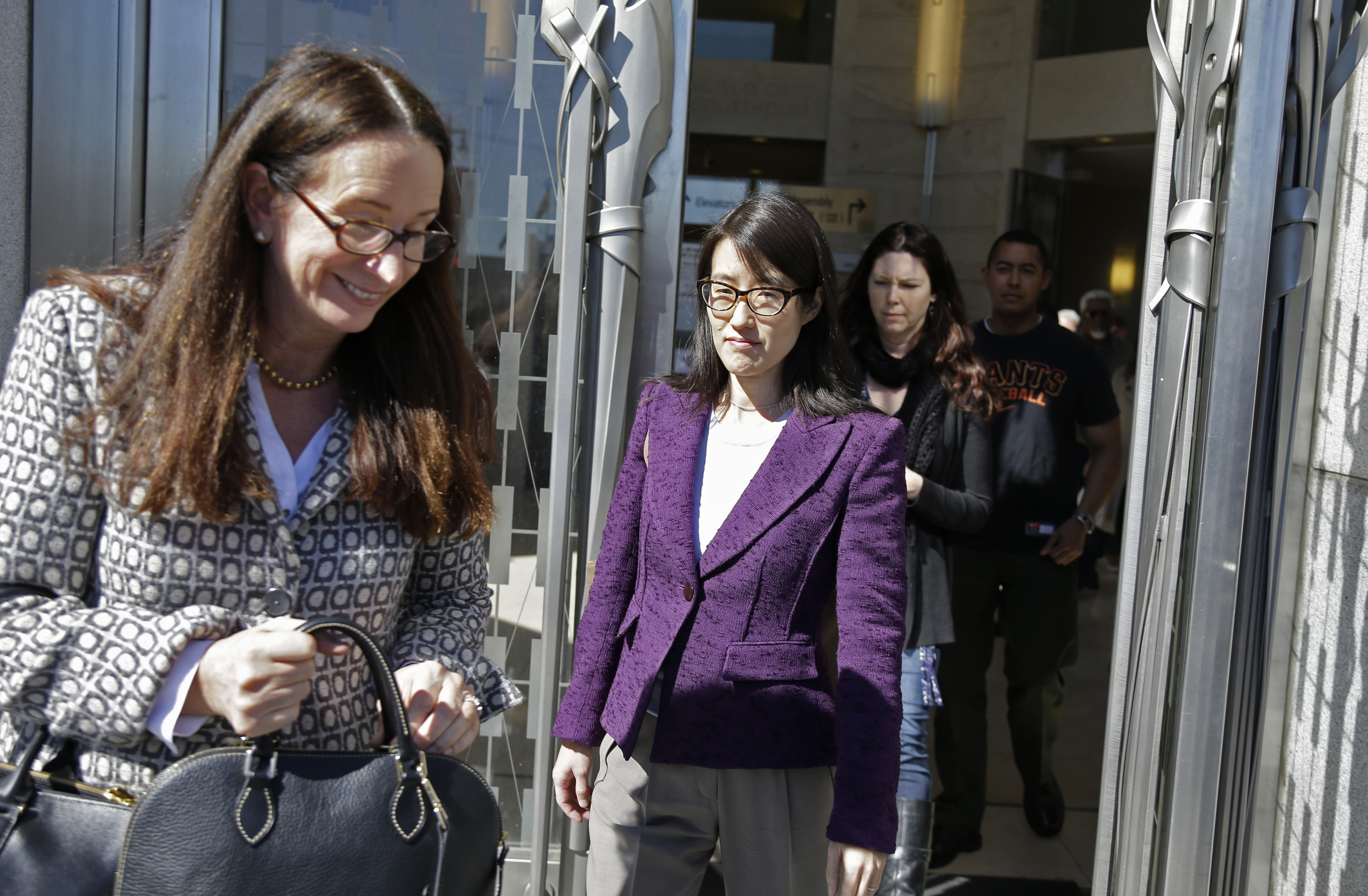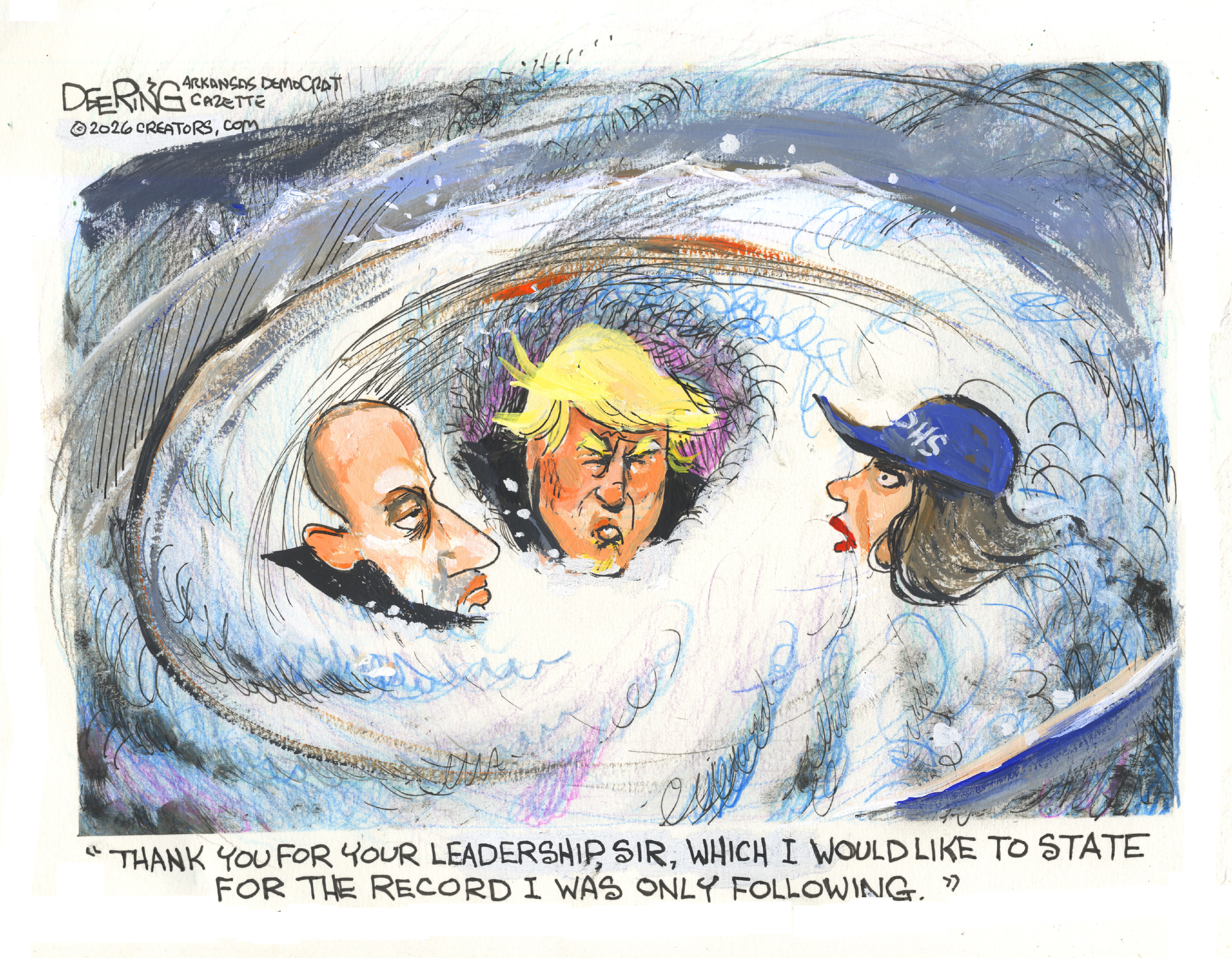The bias lawsuit rocking Silicon Valley
Everything you need to know, in three paragraphs

A free daily email with the biggest news stories of the day – and the best features from TheWeek.com
You are now subscribed
Your newsletter sign-up was successful
"The tech world is having its 'boom-boom room' moment," said Rob Cox at Reuters. Nearly 20 years after a lawsuit exposed Wall Street's widespread sexism and "frat-house culture," a high-profile suit alleging gender bias at a blue-chip venture capital firm has captivated Silicon Valley. Ellen Pao, a former junior partner at Kleiner Perkins Caufield & Byers, claims she was treated "despicably, maliciously, fraudulently, and oppressively" during her tenure there, said Sara Ashley O'Brien at CNN. She describes the firm, which was an early investor in Google and Facebook, as an old boys' club where "sexual harassment and discrimination were systemic." The few female junior partners were regularly excluded from all-male meetings and business dinners. Pao says male colleagues bantered about visiting the Playboy Mansion and that she was once given a sexually explicit book from a senior partner on Valentine's Day. She also says she felt "pressured" into having sex with a married colleague, who retaliated against her after she ended the relationship. When she complained about his behavior to management, Pao says she was denied choice assignments and promotions. She was fired in 2012 shortly after filing a $16 million suit against the firm.
It has surprised nearly everyone in Silicon Valley that the case has gone to trial rather than being settled out of court, said Nitasha Tiku at The Verge. After three weeks of testimony, Kleiner's defense so far has been to argue that Pao, who is now interim CEO of popular online message board Reddit, "was simply not qualified" to cut it in the high-stakes world of venture capital. She was deemed "too quiet, resentful, territorial, and dismissive," a "squeaky wheel" who complained too much and grabbed for credit. Yet the men at Kleiner also come across as having "attitudes derived from an earlier era," said David Streitfeld at The New York Times. One of the top partners claimed Pao had "a female chip on her shoulder"; another asked the only two women in a large meeting to take notes for the other attendees. Suggestions in Pao's performance reviews are best summed up as puzzlingly contradictory: "Speak up — but don't talk too much. Light up the room — but don't overshadow others. Be confident and critical — but not cocky or negative."
Those "subtle slights and double standards" help explain why there are so few women in leadership positions in Silicon Valley, said Claire Cain Miller at The New York Times. But they are also probably "familiar to any woman in any workplace." Discrimination of this kind, which damns women if they do and damns them if they don't, is "more difficult to define and combat" than overt sexual harassment, but no less damaging. Just 4 percent of senior venture capitalists are women, said Liz Gannes and Nellie Bowles at Recode. That lack of diversity matters, because "these people control where the money flows to create the technology that is so much a part of our modern lives." No matter the outcome, Pao has sparked a conversation the tech industry — and every industry — desperately needs to have. And that means, just on principle, she has already won.
The Week
Escape your echo chamber. Get the facts behind the news, plus analysis from multiple perspectives.

Sign up for The Week's Free Newsletters
From our morning news briefing to a weekly Good News Newsletter, get the best of The Week delivered directly to your inbox.
From our morning news briefing to a weekly Good News Newsletter, get the best of The Week delivered directly to your inbox.
A free daily email with the biggest news stories of the day – and the best features from TheWeek.com
-
 Political cartoons for February 8
Political cartoons for February 8Cartoons Sunday’s political cartoons include going down the drain, American history, and more
-
 Touring the vineyards of southern Bolivia
Touring the vineyards of southern BoliviaThe Week Recommends Strongly reminiscent of Andalusia, these vineyards cut deep into the country’s southwest
-
 American empire: a history of US imperial expansion
American empire: a history of US imperial expansionDonald Trump’s 21st century take on the Monroe Doctrine harks back to an earlier era of US interference in Latin America
-
 The pros and cons of noncompete agreements
The pros and cons of noncompete agreementsThe Explainer The FTC wants to ban companies from binding their employees with noncompete agreements. Who would this benefit, and who would it hurt?
-
 What experts are saying about the economy's surprise contraction
What experts are saying about the economy's surprise contractionThe Explainer The sharpest opinions on the debate from around the web
-
 The death of cities was greatly exaggerated
The death of cities was greatly exaggeratedThe Explainer Why the pandemic predictions about urban flight were wrong
-
 The housing crisis is here
The housing crisis is hereThe Explainer As the pandemic takes its toll, renters face eviction even as buyers are bidding higher
-
 How to be an ally to marginalized coworkers
How to be an ally to marginalized coworkersThe Explainer Show up for your colleagues by showing that you see them and their struggles
-
 What the stock market knows
What the stock market knowsThe Explainer Publicly traded companies are going to wallop small businesses
-
 Can the government save small businesses?
Can the government save small businesses?The Explainer Many are fighting for a fair share of the coronavirus rescue package
-
 How the oil crash could turn into a much bigger economic shock
How the oil crash could turn into a much bigger economic shockThe Explainer This could be a huge problem for the entire economy